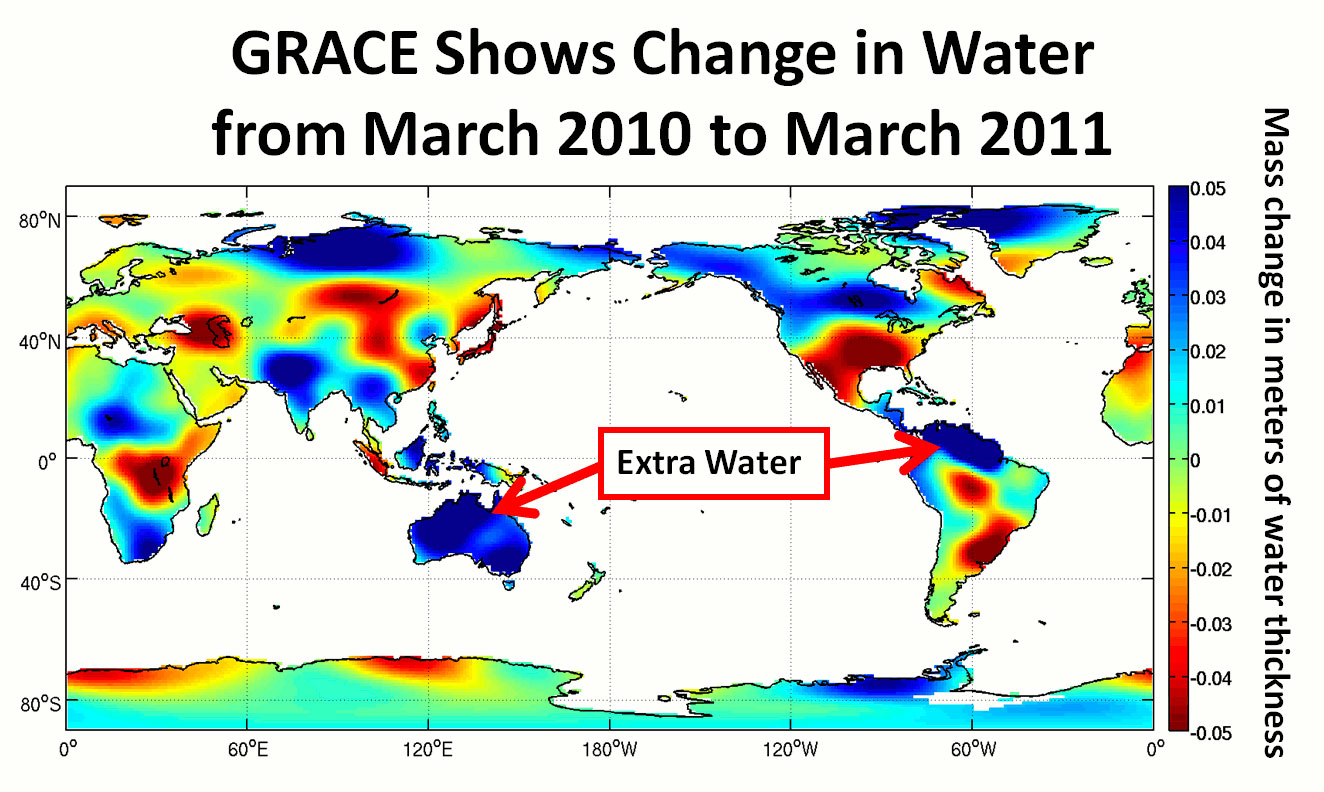
A number of climate not-so-skeptics have recently been exploiting global sea level data in their latest attempt to hide the incline. Skeptical Science readers will be very familiar with the tactics the "skeptics" use to make this argument:
Climate "skeptics" have used this exact same strategy to hide the incline in global surface temperatures (here and here and here), lower troposphere temperatures (here), and ocean heat content (here and here). We've found that an effective way to reveal the deception of these arguments is with an animated GIF, comparing the long-term data with the short-term "skeptic" cherrypick. Figure 1 makes this comparison for the global mean sea level data during the satellite radar altimiter record (since 1993) from the University of Colorado. The first frame shows the entire record, the second shows recent periods of flat or declining mean sea level, and the third shows the most recent short-term decline.
Figure 1: University of Colorado global mean sea level data with a 12-month running average, and short-term declines.
Figure 1 confirms that yes, global mean sea level has declined slightly over the past year or so, and even slightly more than previous recent declines. But a true skeptic should ask what has caused this short-term decline, especially since it appears counter-intuitive. After all, land-based ice continues to melt rapidly, and the oceans continue to warm rapidly (thermal expansion of ocean water contributes to sea level rise). So what has dampened the long-term sea leve rise illustrated in Figure 1?
As Skeptical Science has previously reported, climate scientists attribute the short-term decline to extreme flooding in 2010. This period also saw a strong La Niña cycle, which typically results in an increase of rain and snow falling over land, which corresponds with a fall in global sea level. The last 18 months has seen some epic deluges throughout the world; countries such as Pakistan, Sri Lanka, Australia, the Philippines, Brazil, Colombia, and the United States have been hammered with extreme flooding. Figure 2 illustrates where the water has gone.

Figure 2: Change in land-based global water storage in the period March 2010 to March 2011, as observed by GRACE gravity satellites. Image from NASA JPL.
In short, arguments that sea level rise has stopped are based on the same tired old "skeptic" tricks of cherrypicking short-term data and ignoring the long-term trend. We know that ocean warming and melting ice will cause sea level to rise over the long-term, and the only reason the sea level rise has temporarily slowed is that there was so much flooding in 2010 - hardly a result worth celebrating. As long as humans continue to warm the planet by increasing the amount of greenhouse gases in the atmosphere, we can expect the long-term sea level rise to continue.
Note: This post has been adapted into the Basic rebuttal to Sea level fell in 2010. Rob Painting previously published the Intermediate rebuttal.
Posted by dana1981 on Tuesday, 15 November, 2011
 |
The Skeptical Science website by Skeptical Science is licensed under a Creative Commons Attribution 3.0 Unported License. |